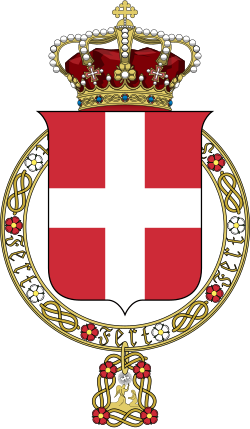Zanardelli government | |
|---|---|
| 39th Cabinet of Italy | |
 | |
| Date formed | 15 February 1901 |
| Date dissolved | 3 November 1903 |
| People and organisations | |
| Head of state | Victor Emmanuel III |
| Head of government | Giuseppe Zanardelli |
| Total no. of members | 11 |
| Member party | Historical Left Historical Right |
| History | |
| Predecessor | Saracco Cabinet |
| Successor | Giolitti II Cabinet |
The Zanardelli government of Italy held office from 15 February 1901 until 3 November 1903, a total of 991 days, or 2 years, 8 months and 19 days. [1]
